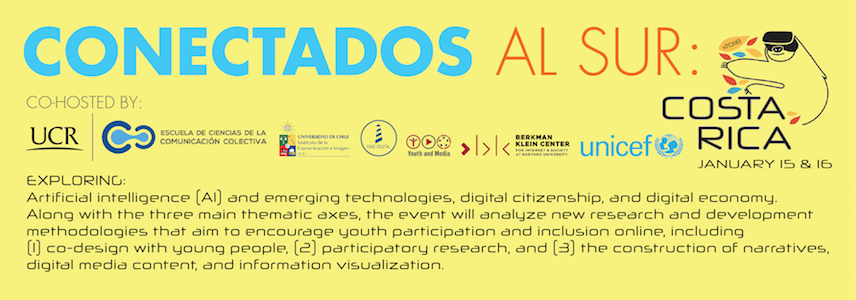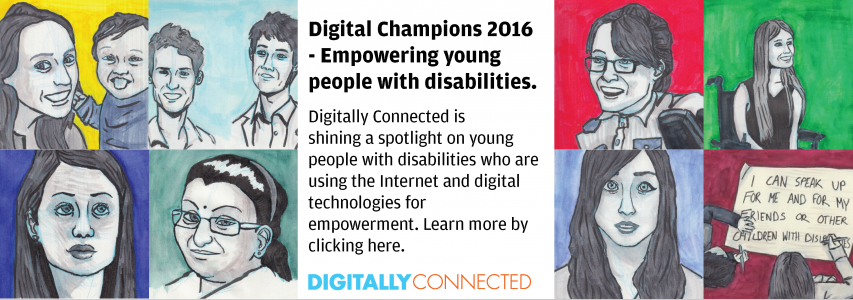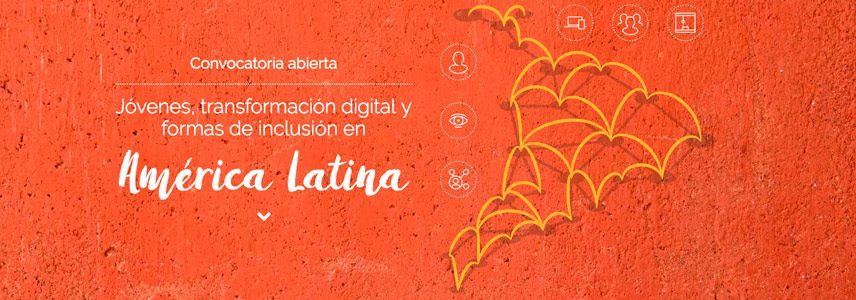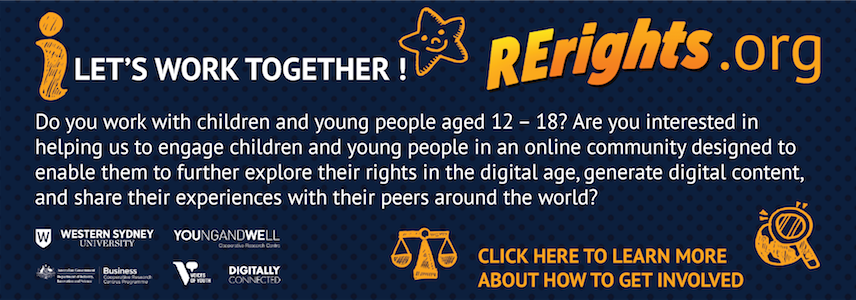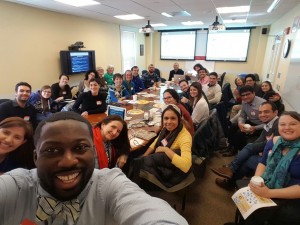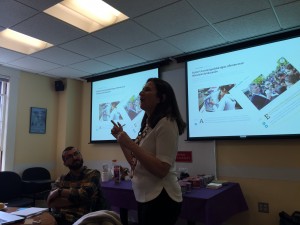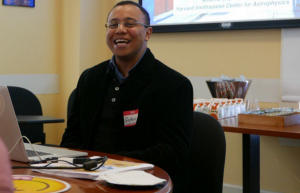The Breakfast of Ideas event series seeks to bring together both people from Latin American and individuals who have an interest in Latin American affairs revolving around issues of children and youth, technology, Internet and social media, education technology, and new applications for social changes.
While taking place on a somewhat irregular basis, the Breakfast of Ideas bring together Latin American academics, practitioners, activists, philanthropists, and entrepreneurs as well as members from the broader Latino community at Harvard University, the Massachusetts Institute of Technology, Boston University, Northeastern University, Tufts University, Boston College, Brandeis University, Wellesley College, and other institutions of higher education in the Greater Cambridge and Boston area.
Discover more photos and our invitation
Past Breakfast of Ideas:
- Friday, June 3, 2016
“Operation Spark” with John Fraboni
- Friday, May 22, 2016
“International Development Design Summit: the Colombia experience” with Pedro Reynolds-Cuéllar
- Friday, April 22, 2016
“Digital Citizenship” with Andres Lombana
TELA (Technology and Education in Latin America) is an interdisciplinary research and development initiative that focuses on the relationships between ICTs and education in the region. From the perspective on Argentinian and Colombian cases the discussion explored questions like: What kind of policies have been developed in order to integrate ICTs in the educational systems? What are the major challenges for such implementation? What has been the impact of such policy initiatives?
- Friday, April 15, 2016
“Youth and racist speech in Brazil and Colombia” with Niousha Roshani
Although Brazil and Colombia hold the largest population of African descent in Latin America, racist speech continues to portray young Afro-descendants as the greatest perpetrators of the growing violence in the region. They are represented as a sector of the population at risk, and not as autonomous social and political actors. The created image by discriminatory discourse limits young people’s capabilities and freedoms, inhibiting them from pursuing opportunities which can improve their lives, contribute to their communities, and build social trust. And yet, in these environments of state neglect and armed violence, Afro-Brazilian and Afro-Colombian youth develop their own initiatives to shape their communities and affect public policy through civic engagement and leadership in their communities using the Internet.
- Friday, March 4, 2016
“Latino STEM Alliance” with Amanda Martínez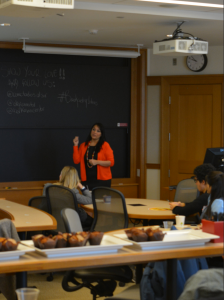
The Latino STEM Alliance brings existing and successful national robotic programs to partner schools and community groups. The goal is to enable underserved youth to experience hands-on STEM enrichment activities along with relevant role-models in order to inspire them to consider STEM related careers. As a part of these objectives, LSA builds into its programming a robust parent education program where parents learn about STEM and STEM-related educational and career pathways not only for their children who are participating in our programs, but also for themselves.
- Friday, February 19, 2016 with Antonio Copete
Antonio Copete shared the Science Clubs Colombia Project, featuring young Latin American scientists and researchers attending universities such as Harvard, MIT, and Stanford. These scientists and researchers are making a profound social change through a new educational platform developing intensive and high quality applied science courses for youth living in economic disadvantaged neighborhoods in major cities in the country.
The aim of the Science Clubs is to cultivate a positive and proactive attitude towards science and technology amongst high school students in Colombia. In October 2015, the project joined 374 students from 30 public schools in Bogota and Antioquia which 48.7% were female and 51.3% male between 12 and 20 years old. “Our goal is to empower young people with high-quality science education. We want to encourage them to follow a professional career path in science or engineering while facilitating access to the most renowned universities in the US and the world”. – Antonio said in his presentation.



